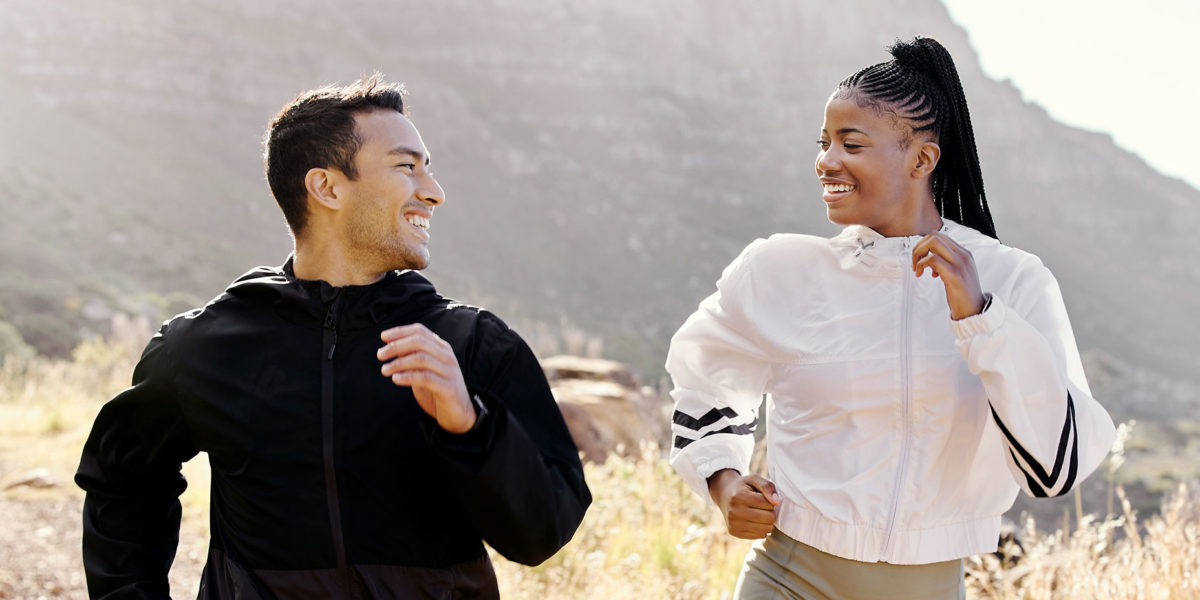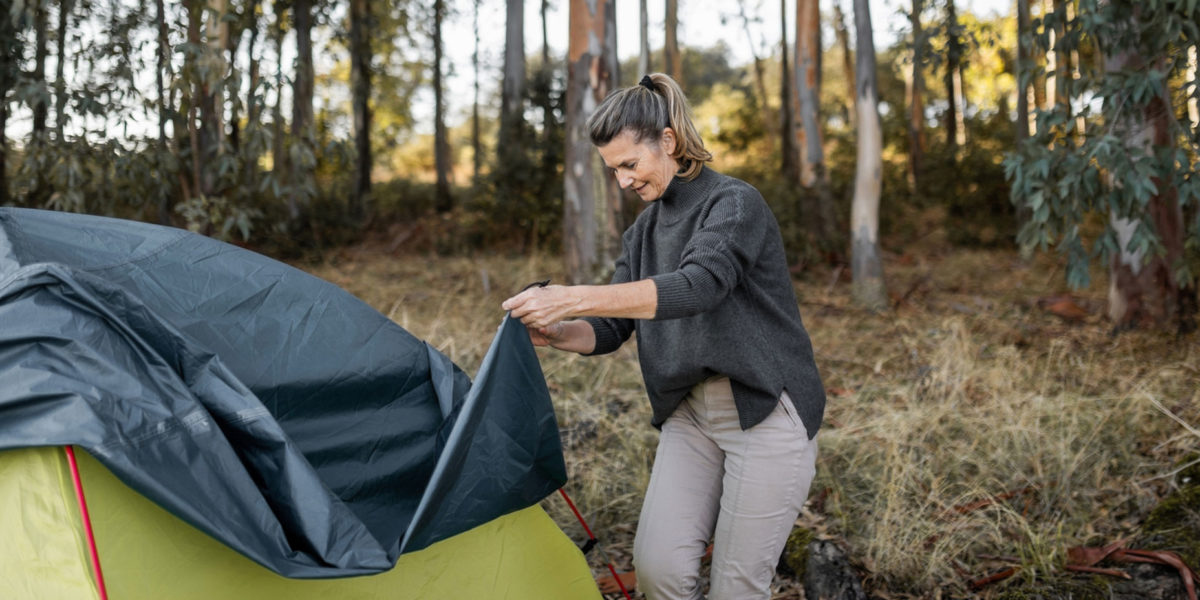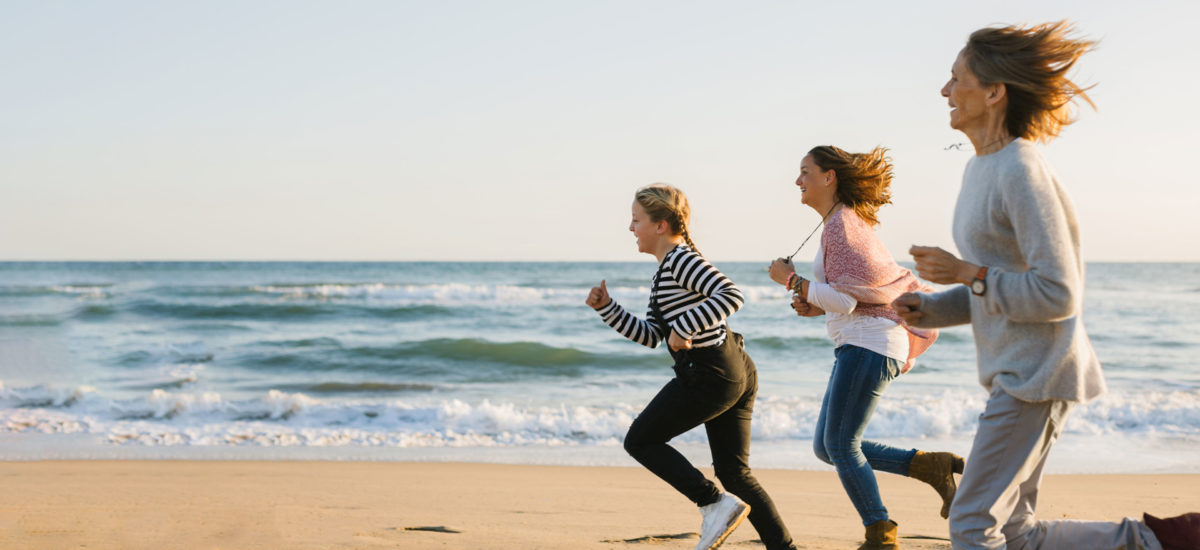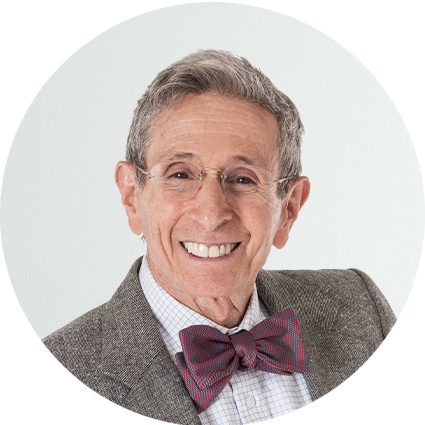Most people put off focusing on bone health until they’ve reached their 50s or begun going through menopause. While it’s never too late to start turning your bone health around, the trajectory of your bone loss actually begins much earlier than you may think.
In this article, we’ll walk you through your bone health timeline, beginning in adolescence all the way to your postmenopausal years. As you’ll learn, bone integrity is something that you can start working on at any time in your life – and the earlier, the better.
Bone Development And Staying Healthy
Adolescent Bone Health
As an adolescent, your body is constantly growing and changing, which requires a significant amount of energy and nutrients. Specifically, when it comes to bone health in adolescents, nutrients such as vitamin D and calcium are crucial.
Calcium, which is a key nutrient for bone mineral density, is not made in the body, so you have to get it through diet. Meanwhile, vitamin D plays an important role in helping your body absorb and utilize calcium.
Puberty (which happens around ages 11 to 17) is one of the most rapid periods of bone growth. During this time, your body is shifting hormonally and physically, ideally creating a strong foundation of bone that will carry you into your later years [1].
Unfortunately, research shows that calcium is one of the most under-consumed nutrients in the US, with around 40% of the population (including adolescents) not meeting their calcium requirement from their diet [2].
Therefore, the longevity of bone health truly begins in early adolescence by making sure that you’re feeding your body the nutrients it needs to build a foundation of healthy bones.

Bone Health in Your 20s
As you move into your 20s, your bones continue to grow, and bone mass finally reaches its peak around ages 25 to 30. Peak bone mass is the maximum amount of bone you will have during your life. Achieving healthy bone status in your 20s is vital because you will inevitably, slowly, start to lose bone mass from here [3].
However, research shows that the stronger and healthier your bones are at peak bone mass, the more they can decline before reaching a danger point later on in life. There is also evidence that supplementing with calcium during this stage of life, before you hit peak bone mass, can reduce your risk for bone disease later in life [14].
If your bone mass is healthy and strong, then the downward trend won’t be as steep – which is excellent for reducing your risk of osteoporosis in the future. In fact, increased peak bone mass by one standard deviation may reduce fracture risk in your older years by 50%. However, if your bone mass in your 20s is already weak, it could accelerate the rate at which you lose bone integrity as your body naturally ages, increasing your risk for bone-related disease [15].
To achieve adequate bone density during this time of life, nutrition and exercise are both vitally important. While calcium and vitamin D provide the building blocks for healthy bones, exercise (especially resistance exercise) gives your body the push to enhance bone integrity [4].

Bone Health in Your 30s
Once you enter your 30s, the process of bone remodeling begins to slow down. Until now, your bones have been growing (building up) faster than they break down, allowing you to achieve peak bone mass in your 20s.
However, once you reach your 30s, the bone remodeling process begins to shift and instead of building more bone than you lose, your bones hit an equilibrium where bone loss and bone rebuilding are more in balance.
It’s important to maintain your nutrient status during this time by getting enough food and supplements containing calcium and vitamin D. While it is possible to get calcium through your diet, most people aren’t consuming adequate amounts. And vitamin D is well-known to be difficult to replete through food alone, so a combination of food and supplements is really the ideal course to take if you want to maintain the status of these two nutrients.
This is also a crucial time to continue focusing on exercise to maintain the bone integrity you accumulated in your adolescence and 20s.
Bone Health in Your 40s & 50s
After the age of 40, the bone remodeling process takes a slight turn, and you begin to slowly lose (break down) more bone than you’re able to rebuild. During this time of life, you may lose around 1% of bone mineral density per year [5].
While this may sound scary, keep in mind that if you had strong bones to begin with in your 20s, you can still have a healthy bone density despite these small losses. However, this is no time to back-burner your bone health needs.
Once you hit your 50s, you enter a new stage of life where your hormones begin to shift, and most women enter premenopause, perimenopause, and ultimately menopause.
During this life transition, your ovarian function shifts, producing less estrogen. Estrogen is not only a hormone that drives your menstrual cycle and promotes fertility, but is also highly involved in bone remodeling. Specifically, estrogen helps to slow down the bone resorption process (bone loss) while enhancing the activity of bone bone-building cells [6][7].
As estrogen production slows, bone loss becomes more prominent.
While you may experience little to no change during the premenopausal years, once you hit perimenopause (the time right before menopause), bone loss may increase up to 2% per year or higher [8].
In menopause, which is characterized by 12 consecutive months with no menstrual cycle, bone loss accelerates even further. Research suggests that women may lose up to 20% of bone density during menopause and the postmenopausal period [9].
This is not only due to reduced estrogen production, but a shift in hormones (such as parathyroid hormone) that can cause calcium to be pulled from your bones, creating a deficiency [10].
Therefore, supplementing with a high-quality calcium source is vital during this time in your life, which is also evidenced by the increase in calcium requirement from 1000 mg daily to 1200 mg daily once you hit the age of 51. Keep in mind that calcium is already a nutrient that can be very challenging to get enough of through diet alone. Add to that the hormonal shifts that take place during menopause, and maintaining calcium status through diet alone becomes nearly impossible [16].
In addition to supplementing with bone-building nutrients, maintaining physical activity is essential during menopause. Exercise will not only promote stronger muscles and bones, but can also mitigate some of the stress that comes with this life transition [11][12].

Bone Health After Menopause
Postmenopause is a time where your bones may slow down their loss, but they still just went through the ringer with all the menopausal shifts. This is certainly not the time to take your eye off your bone health, as mentioned, after the age of 40 bone density may decrease at a rate of around 1% per year.
To ensure that your bones stay strong and healthy enough to avoid fractures and other bone-related issues, you’ll want to continue to exercise in a way that promotes muscle mass, for example; resistance training, balance exercises, and yoga. And of course, keeping your calcium and vitamin D stores high is essential [12].
Research shows that when you supplement appropriately during this time of life it can go a long way in preventing bone loss, which in turn may significantly reduce your risk of osteoporosis [17].
A Proactive Vs. Reactive Approach to Bone Loss
During your menopausal years, you may be unaware that your bones are slowly becoming weaker. There are so many shifts happening, that bone health can easily slip under the radar.
Unfortunately, this is why many women don’t even know about their bone loss until they experience a fracture. And research shows that approximately 40% of postmenopausal women will have at least one bone fracture [13].
Having a proactive approach to bone loss could be the one thing that stands between you and fractures, osteoporosis, and other forms of bone disease.
So, where do you begin?
While there are many bone-health-promoting supplements out there, they are not all created equally. Most calcium supplements are able to do the job of slowing bone loss, but if you want to actually stop bone loss, it takes a little something extra.
That’s exactly what AlgaeCal does with our algae-based calcium. In this one product; you receive all 13 bone-supporting minerals plus a potent source of vitamin D to supply your bones with the nutrition they require to stay healthy and turn around the bone loss that comes with age.
Takeaway
Although most people consider the skeletal system pretty static, it’s actually an incredibly dynamic part of your anatomy. In every stage of your life, your bones are growing and changing – reshaping and reconfiguring themselves.
While most young people have relatively healthy, mineral-dense bones, as you age, your bones start to slowly lose their integrity. To get ahead of bone loss and stop its natural decline, there are two vital steps you can take:
- Be sure to maintain physical activity throughout your life to the best of your capacity.
- Supplement with high-quality bone-building nutrients like those found in AlgaeCal.
With mindful awareness of your bone health, you can ensure the integrity of your bones in the long-run and prevent bone loss that leads to issues as you age.
References
- Boyanov, Mihail A. “Bone development in children and adolescents.” Puberty. Springer, Cham, 2016. 77-94.
- https://lpi.oregonstate.edu/mic/micronutrient-inadequacies/overview#calcium
- Kralick, Alexandra E., and Babette S. Zemel. “Evolutionary perspectives on the developing skeleton and implications for lifelong health.” Frontiers in endocrinology 11 (2020): 99.
- Huovinen, Ville, et al. “Bone mineral density is increased after a 16-week resistance training intervention in elderly women with decreased muscle strength.” Eur J Endocrinol 175.6 (2016): 571-82.
- https://my.clevelandclinic.org/health/diseases/21855-osteopenia#:~:text=But%20after%20age%2035%2C%20bones,Medical%20conditions%20such%20as%20hyperthyroidism
- Kameda, Takashi, et al. “Estrogen inhibits bone resorption by directly inducing apoptosis of the bone-resorbing osteoclasts.” The Journal of experimental medicine 186.4 (1997): 489-495.
- Khosla, Sundeep, Merry Jo Oursler, and David G. Monroe. “Estrogen and the skeleton.” Trends in Endocrinology & Metabolism 23.11 (2012): 576-581.
- Lo, Joan C., Sherri-Ann M. Burnett-Bowie, and Joel S. Finkelstein. “Bone and the perimenopause.” Obstetrics and Gynecology Clinics 38.3 (2011): 503-517.
- https://www.endocrine.org/patient-engagement/endocrine-library/menopause-and-bone-loss#:~:text=Menopause%20significantly%20speeds%20bone%20loss,are%20affected%20by%20osteoporosis%20worldwide
- Qureshi, Hamid Javaid, et al. “Calcium status in premenopausal and postmenopausal women.” Journal of Ayub Medical College Abbottabad 22.2 (2010): 143-145.
- Kemmler, Wolfgang, et al. “Benefits of 2 years of intense exercise on bone density, physical fitness, and blood lipids in early postmenopausal osteopenic women: results of the Erlangen Fitness Osteoporosis Prevention Study (EFOPS).” Archives of Internal Medicine 164.10 (2004): 1084-1091.
- Mishra, Nalini, and V. N. Mishra. “Exercise beyond menopause: Dos and Don’ts.” Journal of mid-life health 2.2 (2011): 51.
- Sowers, Maryfran, et al. “Bone mineral density and its change in pre‐and perimenopausal white women: the Michigan bone health study.” Journal of Bone and Mineral Research 13.7 (1998): 1134-1140.
- Liu, Yupeng, et al. “The effect of calcium supplementation in people under 35 years old: A systematic review and meta-analysis of randomized controlled trials.” medRxiv (2022).
- Bonjour, Jean-Philippe, et al. “The importance and relevance of peak bone mass in the prevalence of osteoporosis.” Salud publica de Mexico 51 (2009): s5-s17.
- https://ods.od.nih.gov/factsheets/Calcium-HealthProfessional/#h2
- Reid, Ian R., et al. “Effect of calcium supplementation on bone loss in postmenopausal women.” New England Journal of Medicine 328.7 (1993): 460-464.






Ruth Garman
November 30, 2022 , 12:14 pmWhat should you do after your bones are at a very bad level. I fell last year and shattered my left hip.
I was told then my bones were in very bad shape. Started taking several supplements then. Algae Cal being one of them. My question is will AlgaeCal be able to correct the bone problem and how long do you think it will take with exercise and AlgaeCal to make my bones strong again, if ever. I will have been taking AgaeCal and walking 30 minutes every other day as soon as I could walk about 3 weeks after the accident.
I also have Nerve damage in my left leg do to an accident I had when I was 45, I am now 78. this causes my left leg to be very unreliable, causing my leg not to lift every time when walking if I am not careful.
Is there a supplement that could wake those nerves up? The right leg is why the left hip was shattered
Thank you
Ruth Garman